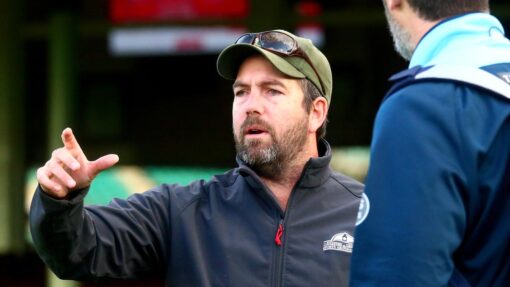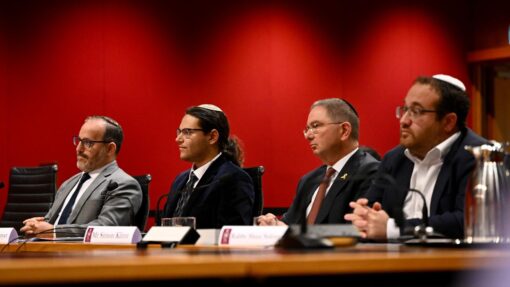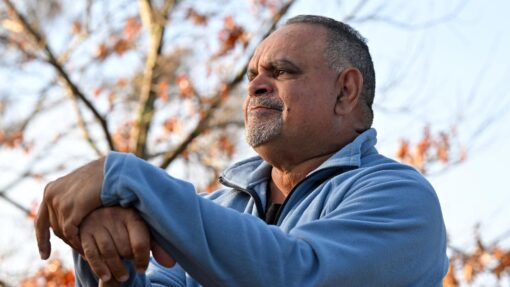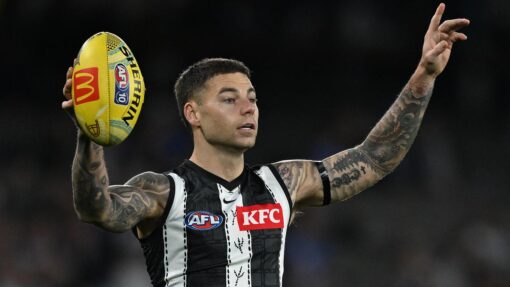Orchestra tunes up for milestone program
Tony Magnusson |
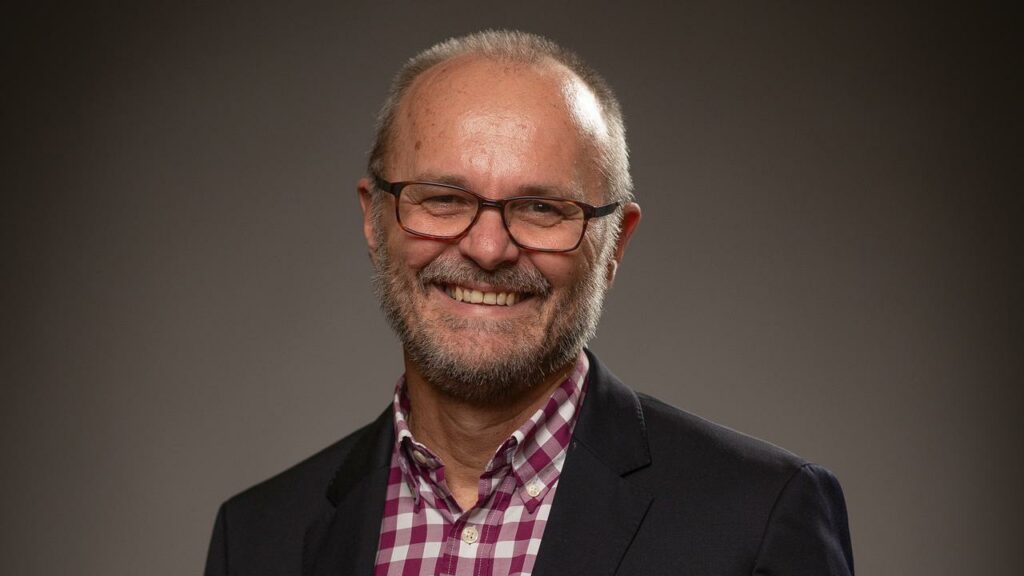
One of Australia’s premier symphony orchestras will celebrate a milestone season by performing a diverse program that includes a stirring melody the group’s forerunners played at their first concert 75 years ago.
While professional orchestras around the world are grappling with the difficulties posed by the pandemic, there is a triumphant tone to Queensland Symphony Orchestra’s (QSO) anniversary program that will entice those who like their musical experiences full throttle.
The orchestra will play Hungarian March, from The Damnation of Faust, which QSO performed at its debut in Brisbane City Hall on March 26, 1947.
The season also includes Soaring Heights, a program encompassing Strauss’s epic Alpine Symphony alongside Brahms’ Piano Concerto No.2 performed by Australian pianist Daniel de Borah.
“Strauss’s symphony requires 100 musicians on stage, so it’ll be a wonderful showcase for our orchestra,” says director of artistic planning Tim Matthies.
The 2022 program will be performed at a challenging time for Queensland’s largest performing arts company following a rocky chapter that saw its previous music director, Mexican conductor Alondra de la Parra, leave after three years.
There have also been several managerial departures.
Matthies hopes that a permanent conductor will be appointed this year, with several contenders expected to spend time with the musicians over the coming season.
“It’s like a courtship,” Matthies says.
“There’s a first date and, if things go well, hopefully a second date.
“Depending on how that goes, there could be a third. Or not. Every relationship is different.
“We’re also interviewing for the chief executive role later this month,” he says.
In the meantime, the orchestra’s conductor laureate – and chief conductor from 2008-14 – German-born Johannes Fritzsch, will guide the orchestra until a new chief conductor has been appointed.
There might be a temporary vacuum at the top, but arguably the situation presents an opportunity for the orchestra’s members to step into the spotlight.
“This is a period of transition and renewal,” says Matthies.
The 2022 season offers just that chance, placing them front and centre in an egalitarian program of concerts and events big on accessibility.
“Brisbane audiences have diverse tastes and we’re keen to appeal to as many people as possible,” Matthies says.
Never been to an orchestral concert but curious to sample a bite-sized menu of choice classical cuts?
The season begins with QSO Favourites, where the orchestra plays classics suggested by concert-goers.
Expect Johann Strauss II’s On the Beautiful Blue Danube, John Williams’ Star Wars theme and the Jupiter excerpt from Holst’s The Planets.
When the orchestra debuted QSO Favourites last year, four out of 10 audience members had never previously been to one of its concerts.
“That’s a great statistic we’re keen to repeat,” Matthies says.
This year the orchestra will live-stream the QSO Favourites, Four Seasons, and Beethoven and Dvorak concerts.
The popular theme continues with Superfamous, featuring snippets of instantly recognisable pieces such as Debussy’s Clair de Lune and Mozart’s Eine Kleine Nachtmusik.
Conducted by much-loved raconteur Guy Noble, Superfamous will also travel to Cairns, Gladstone, Toowoomba and the Sunshine Coast as part of the orchestra’s extensive regional schedule.
Japanese violinist Natsuko Yoshimoto, who joined the ensemble in 2021 following a decade as concertmaster of the Adelaide Symphony Orchestra, will perform two versions of the Four Seasons.
She will cycle through the group of four violin concerti composed by Vivaldi circa 1720, alongside Argentine tango composer Astor Piazzolla’s Four Seasons of Buenos Aires, written between 1965-70.
And principal double bass Phoebe Russell will perform the world premiere of Australian composer Paul Dean’s double bass concerto, which has been commissioned especially for her.
Dean, who was formerly the principal clarinet at QSO, now teaches at the Queensland Conservatorium – Griffith University.
“He is really developing as a composer – we performed his first symphony last year and it’s a powerful piece. The concerto is currently being written and we can’t wait to share it.”
The program will also include the Queensland premiere of Sydney-based composer Andrew Howes’ Luminifera – Wild Light for Orchestra, as well as Rachmaninov’s rousing second symphony.
Elsewhere, principal clarinet Irit Silver will play Mozart’s clarinet concerto.
Acclaimed soloists Sara Macliver (soprano), Fiona Campbell (mezzo-soprano), Andrew Goodwin (tenor) and James Clayton (baritone) will perform Mozart’s haunting Requiem along with the Brisbane Chamber Choir.
And rising star Chinese-Australian tenor Kang Wang will sing popular arias – solo vocal pieces – by Puccini and Verdi in a program that also covers off Tchaikovsky’s fourth symphony.
With the country’s borders open again, the orchestra will be joined by several international guests including Armenian cellist Narek Hakhnazaryan (Elgar’s cello concerto), Uzbek pianist Behzod Abduraimov (the Rach 2), and Israeli-born violinist and conductor Guy Braunstein (Beethoven’s violin concerto).
Australian women composers are a focus for the orchestra this year, with works by the late Miriam Hyde and Margaret Sutherland to be performed in July and October, respectively.
Brisbane-born, Berlin-based composer Cathy Milliken’s award-winning work, Piece 43 for Now, written in response to the COVID-19 pandemic, will have its Australian premiere in August.
And Queensland Conservatorium alumnus Melody Eotvos’s Egyptian-themed work The Saqqara Bird will feature in the same program as Mozart’s clarinet concerto.
Matthies says that in spite of the difficulties presented by the pandemic, QSO has increased its audiences over the past two years, especially those aged in their 30s and 40s.
“In 2021 we programmed more concerts than usual because we thought we’d have to adhere to 50 per cent seating capacity, but in the end, luckily, we didn’t have to,” Matthies says.
Unlike many other parts of Australia, Queensland did not endure long lockdowns in 2021 due to modest COVID-19 infection numbers.
“We’ve also worked hard to make our seasons more accessible by programming concerts on Saturday afternoons and Sunday mornings, as well as offering both shorter and longer concerts, and a range of ticket prices,” he says.
Meanwhile, French horn player Vivienne Collier-Vickers will host Sounds Like an Orchestra, which promises to unlock the magic of music for younger audience members by introducing them to different instruments.
“We did a variation of this last year, and afterwards we had audience members telling us it reminded them of Leonard Bernstein’s children’s concerts with the New York Philharmonic when they were growing up in New York,” he says.
“That’s exactly the type of experience we want for Brisbane. It’s high-quality but done in a friendly, open and accessible way.”
qso.com.au
AAP